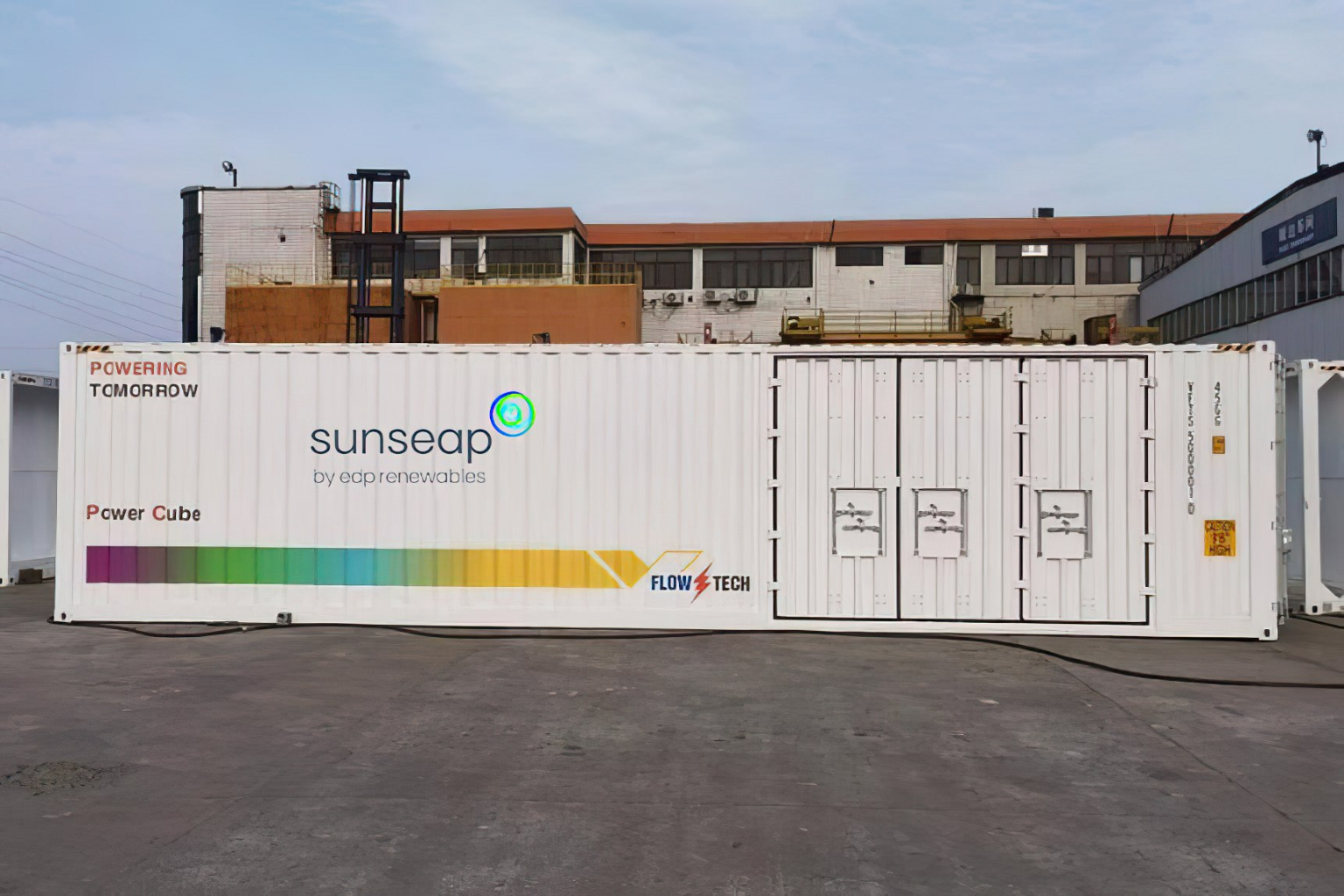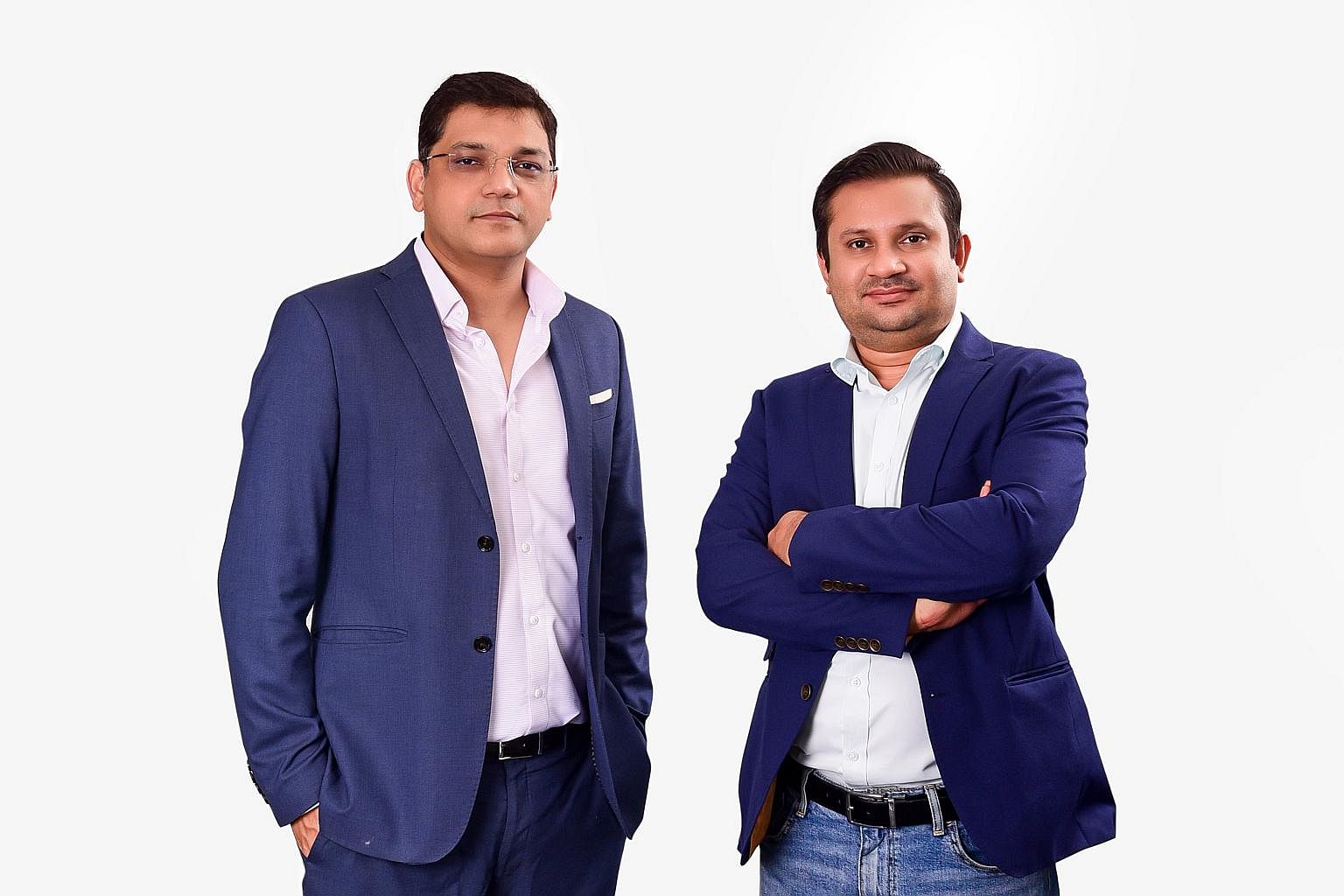Start-up's novel energy storage system to power parts of Pulau Ubin
Sign up now: Get ST's newsletters delivered to your inbox

VFlowTech has built a container-like energy storage system that can store energy from the sun or wind.
PHOTO: VFLOWTECH
Follow topic:
SINGAPORE - Nearly 10 years ago, two scientists from Nanyang Technological University (NTU) had ambitions to create giant batteries that could power towns and buildings at night with clean electricity.
Their vision will take shape on Pulau Ubin soon.
Instead of using the more common lithium metal, which is synonymous with batteries, the duo banked on the lesser known vanadium metal, which is known to be safer and longer lasting.
After years of research and forming start-up VFlowTech, the duo - Dr Avishek Kumar and Dr Arjun Bhattarai - have built a container-like energy storage system that can store energy from the sun or wind.
VFlowTech's technology attracted local energy players, and its battery will soon help to power parts of Pulau Ubin, as its main village seeks to have up to 90 per cent of its electricity from solar energy by next year.
The heart of a vanadium flow battery are two tanks filled with a soup of vanadium ions. One tank has a positive charge, and the other a negative charge.
Surplus solar energy will be pumped into the battery system for storage. At night, or when it is cloudy or supply in an electric grid is unstable, the battery will discharge power to homes, for instance.
A vanadium flow battery lasts 25 years - similar to the lifespan of solar panels - compared with a lithium-ion system which needs to be replaced every seven years, said Dr Avishek, VFlowTech's chief executive.
Professor Subodh Mhaisalkar from NTU's School of Materials Science and Engineering noted that lithium-ion batteries' drawbacks include costs and limited lifetimes.
Vanadium flow batteries can be readily scaled to megawatt levels and can be cheaper over their life cycle, he added.
While the more compact lithium-ion energy storage system is the most viable storage solution today, Singapore should continue to track emerging storage technologies and harness them when they become competitive, said the recent Energy 2050 Committee report commissioned by the Energy Market Authority.
VFlowTech is believed to be the first and only manufacturer of such batteries in South-east Asia.

Singapore aims to have solar capacity of at least 2 gigawatt-peak by 2030, and has an energy storage deployment target of at least 200 megawatts beyond 2025.
From early next year, two of VFlowTech's 40-foot-long batteries will provide one megawatt-hour (MWh) of energy to power parts of Pulau Ubin, including National Parks Board facilities and some houses.
One MWh is equivalent to powering nearly three Housing Board flats for a month.
The enhanced micro-grid on the island will be operated by solar energy firm EDPR Sunseap Apac.
On how VFlowTech will contribute to the nation's energy transition, Dr Avishek said: "To input more clean power, we need gigawatt per hour batteries. And converting some of the tanks on Jurong Island into battery banks, and supporting the import of clean power are our next ambition."
Next month, the start-up will roll out a two-year trial on Jurong Island to find out if it is possible to repurpose oil and chemical storage tanks to contain vanadium liquid - so that the batteries can be scaled up to store gigawatts of energy. VFlowTech will also work with another local start-up to see if recycled vanadium from Jurong Island's industrial carbon waste is suitable for its batteries.
Correction note: An earlier version of this article said Pulau Ubin’s Chek Jawa Visitor Centre will be among the facilities to be powered by the battery storage system, according to information provided by VFlowTech. The company has since clarified that the centre will not be powered under the project. This has been corrected.

